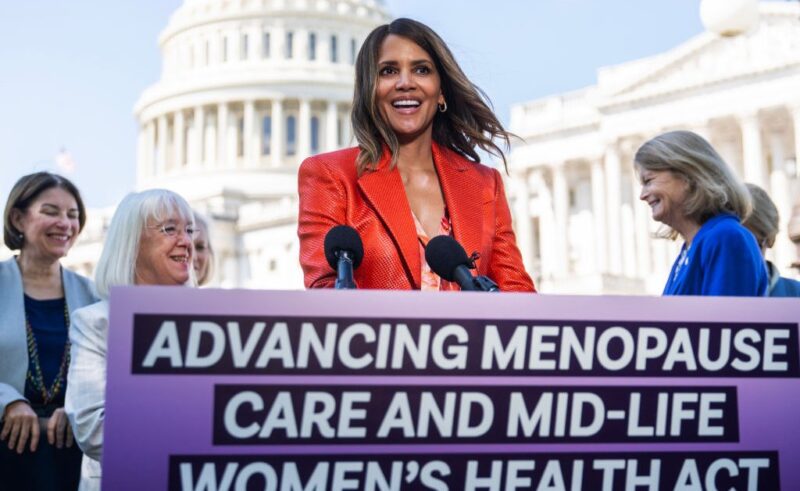It is enraging that women in California have to continue to wait for adequate and informed healthcare, when we were on the precipice of progress.
Last month, California Governor Gavin Newsom vetoed the Menopause Care Equity Act, a bill that had passed the state legislature with near-unanimous bipartisan support. The measure would have ensured insurance coverage for evidence-based treatments and required physician training: practical, cost-effective steps backed by leading medical experts.
An independent analysis from the California Health Benefits Review Program found the law would have had negligible impact on insurance premiums. Still, it was rejected. That veto represents a failure of Gov. Newsom’s commitment to women.
The costs of inaction are staggering. Untreated menopause symptoms contribute to an estimated $1.8 billion in lost productivity in the U.S. every year, but the real toll cannot be measured in dollars alone. It shows up in missed workdays, in preventable physical and mental health crises, and in the erosion of women’s confidence and economic security.
Menopause is not a disease. It is a universal transition, one that, when properly supported, can mark a time of strength, purpose, and renewed vitality. Women in midlife drive innovation and lead across every sector of society. Each year, an estimated 1.3 million women in the United States enter menopause. When they are ignored, everyone loses. When they are supported, everyone thrives.
We can and must take practical, achievable steps to close this gap—and policymakers like Gov. Newsom need to step up. Doctors who treat midlife women should be equipped to understand and treat menopause. Clinics and hospitals should add a quick screening and counseling step to routine visits. Medical schools and physician training programs, including continuing education, should strengthen instruction so new clinicians start better prepared and current providers can better recognize the signs. These steps must be taken urgently.
Even with California’s failure of leadership, other states are leading the way. In Illinois, bipartisan leadership established the state’s first Menopause Awareness Week, a foundational step toward Gov. JB Pritzker and Lt. Gov. Juliana Stratton’s goal of making Illinois a national model for comprehensive women’s health policy. Starting in Jan. 2026, health insurance plans must cover all FDA-approved hormonal and non-hormonal menopause treatments. And this is only the beginning of a larger vision to ensure that Illinois becomes the best state in the nation for women and girls at every stage of life.
Momentum is building elsewhere, too. In Michigan this year, Gov. Gretchen Whitmer’s Michigan Women’s Commission held a statewide menopause education and listening tour, and legislators have introduced four bipartisan bills to expand menopause and perimenopause training, treatment, and coverage in 2026.
Read more: Menopause Is Finally Going Mainstream
In Pennsylvania, leaders like Senator Maria Collett and Reps. Leanne Krueger, Morgan Cephas, and Liz Hanbidge are introducing a comprehensive package of menopause bills. New York’s Assemblymember Linda Rosenthal has introduced three menopause bills, including A9170, which requires menopause training and education for healthcare professionals.
Wisconsin is primed to pass a perimenopause and menopause education bill, led by State Senators Dianne Hesselbein and Rachael Cabral-Guevara and Reps. Karen DeSanto and Robyn Vining. Earlier this year, Rhode Island became the first state to enact workplace protections for women experiencing menopause.
Maine ushered through a bill by Rep. Kristen Cloutier to get education materials into the hands of healthcare providers and the public, signed by Governor Janet Mills in July and already in effect. These efforts demonstrate what’s possible when policymakers understand the science and act with empathy.
The path forward is clear. Medical schools must integrate menopause into core training. Continuing education programs must equip clinicians with up-to-date knowledge. Insurance providers must cover evidence-based treatments, including hormone therapy. Employers must ensure supportive, stigma-free workplaces. Public education campaigns must make menopause information accessible to everyone. The nation’s medical institutions must take menopause seriously, from classroom to clinic.
These are practical, achievable reforms, and they are urgent. We urge policymakers across the country to join us in the fight to make our health care system meet the needs of every woman at every stage of life.
Illinois is leading the way on menopause reforms, and every state in the nation should follow. Because when we invest in women’s health at every stage of life, we build a stronger, more equitable, and more compassionate future for all.








